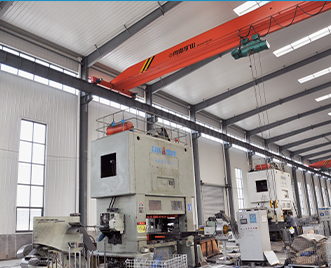Aug . 12, 2024 14:06 Back to list
Exploring the Efficiency and Applications of Compact Deep Well Pumps for Water Extraction
Small Deep Well Pumps A Practical Solution for Water Supply
Small deep well pumps are integral tools for providing water in various settings, including rural homes, agricultural farms, and even urban environments where municipal water supply is limited. These pumps are designed to lift water from deep underground sources, making them essential for accessing groundwater that is not easily available at the surface level.
How Small Deep Well Pumps Work
At their core, small deep well pumps utilize a motor to drive a pump mechanism that draws water from underground aquifers. The pump is typically submerged deep within a well, often several dozen feet below the surface, where it can access a consistent supply of groundwater. The operation of these pumps can be categorized into two main types jet pumps and submersible pumps.
Jet pumps are installed above ground and use a suction mechanism to draw water upward. They are effective for wells that are relatively shallow (up to about 25 feet). In contrast, submersible pumps are designed to operate entirely underwater. They are more efficient for deep wells—those that are hundreds of feet deep—as they are capable of pushing water to the surface with less energy consumption than jet pumps.
Applications of Small Deep Well Pumps
Small deep well pumps are vital in various scenarios. For example, in rural areas where households may not have access to a city water supply, these pumps provide a reliable source of drinking water. Farmers also utilize deep well pumps to irrigate crops, especially in regions where surface water is scarce. Moreover, they are beneficial in landscaping and gardening, allowing homeowners to maintain lush green yards even during dry seasons.
small deep well pump

In addition to residential and agricultural applications, small deep well pumps are also used in commercial endeavors
. Industries that require large quantities of water for processes like cooling, washing, or chemical production often turn to these pumps for a sustainable water supply.Advantages of Small Deep Well Pumps
There are several advantages to using small deep well pumps. Firstly, they enable users to access freshwater sources that would otherwise be unavailable. Groundwater is often cleaner and more reliable than surface water, making it an essential resource for drinking and irrigation.
Secondly, small deep well pumps are relatively low-maintenance compared to larger, more complex water systems. Many models are designed for easy installation and can operate efficiently for years with minimal upkeep. This makes them an attractive option for individuals and businesses looking for long-term water solutions.
Additionally, with advancements in technology, modern deep well pumps are becoming increasingly energy-efficient. Many are now powered by renewable energy sources, such as solar power, reducing the carbon footprint associated with water extraction. This not only benefits the environment but also minimizes operational costs for users.
Conclusion
In summary, small deep well pumps play a crucial role in providing water access in diverse environments. Their ability to efficiently extract groundwater makes them indispensable for rural, agricultural, and even urban applications. As technology continues to advance, these pumps will likely become even more efficient and sustainable, ensuring that communities can maintain access to clean, reliable water sources in the years to come. Whether for domestic use, agricultural needs, or commercial enterprises, small deep well pumps are a practical solution that meets the essential demand for water resources.
-
Submersible Water Pump: The Efficient 'Power Pioneer' of the Underwater World
NewsJul.01,2025
-
Submersible Pond Pump: The Hidden Guardian of Water Landscape Ecology
NewsJul.01,2025
-
Stainless Well Pump: A Reliable and Durable Pumping Main Force
NewsJul.01,2025
-
Stainless Steel Submersible Pump: An Efficient and Versatile Tool for Underwater Operations
NewsJul.01,2025
-
Deep Well Submersible Pump: An Efficient 'Sucker' of Groundwater Sources
NewsJul.01,2025
-
Deep Water Well Pump: An Efficient 'Sucker' of Groundwater Sources
NewsJul.01,2025
-
 Submersible Water Pump: The Efficient 'Power Pioneer' of the Underwater WorldIn the field of hydraulic equipment, the Submersible Water Pump has become the core equipment for underwater operations and water resource transportation due to its unique design and excellent performance.Detail
Submersible Water Pump: The Efficient 'Power Pioneer' of the Underwater WorldIn the field of hydraulic equipment, the Submersible Water Pump has become the core equipment for underwater operations and water resource transportation due to its unique design and excellent performance.Detail -
 Submersible Pond Pump: The Hidden Guardian of Water Landscape EcologyIn courtyard landscapes, ecological ponds, and even small-scale water conservancy projects, there is a silent yet indispensable equipment - the Submersible Pond Pump.Detail
Submersible Pond Pump: The Hidden Guardian of Water Landscape EcologyIn courtyard landscapes, ecological ponds, and even small-scale water conservancy projects, there is a silent yet indispensable equipment - the Submersible Pond Pump.Detail -
 Stainless Well Pump: A Reliable and Durable Pumping Main ForceIn the field of water resource transportation, Stainless Well Pump has become the core equipment for various pumping scenarios with its excellent performance and reliable quality.Detail
Stainless Well Pump: A Reliable and Durable Pumping Main ForceIn the field of water resource transportation, Stainless Well Pump has become the core equipment for various pumping scenarios with its excellent performance and reliable quality.Detail
